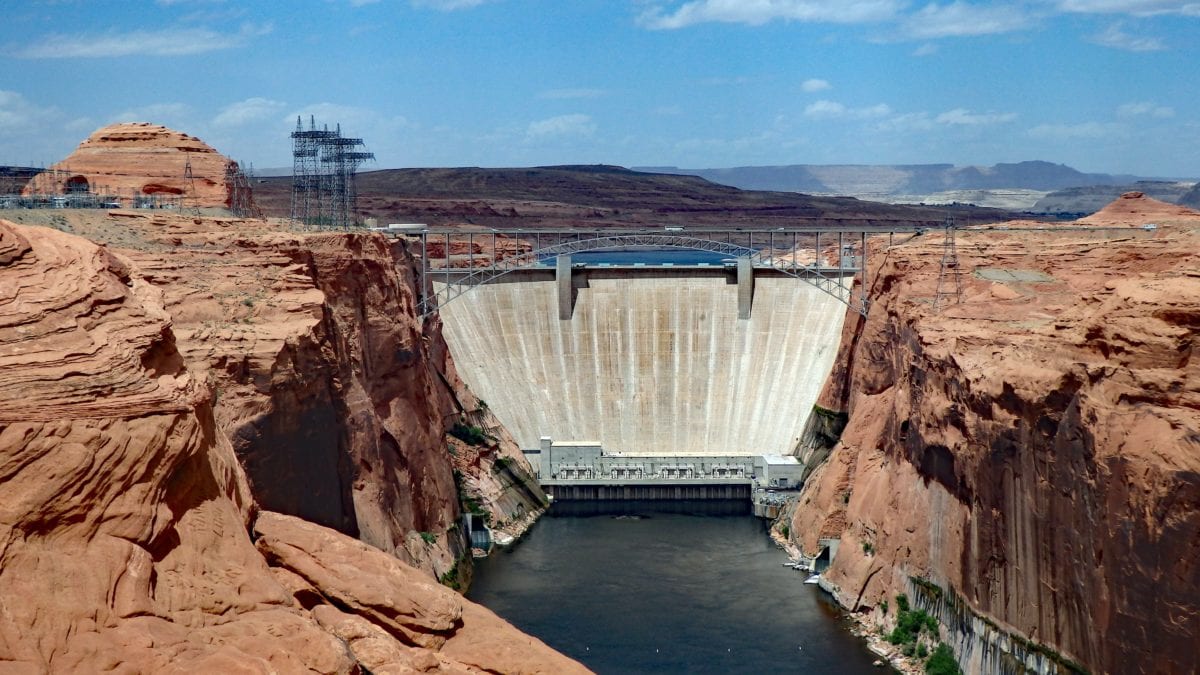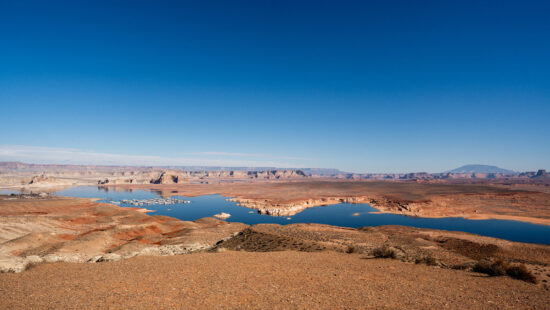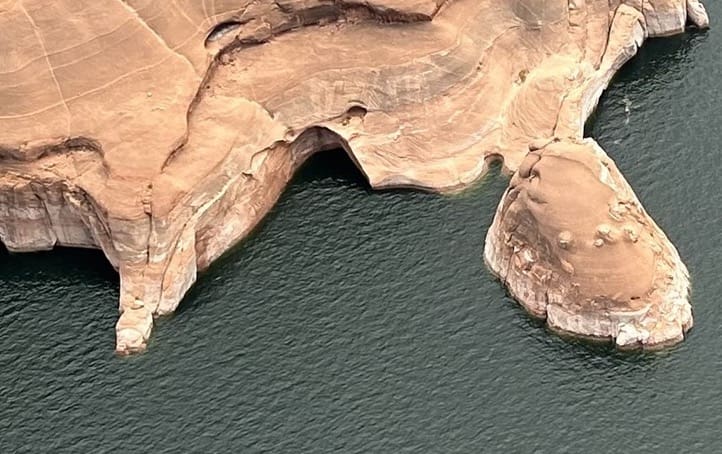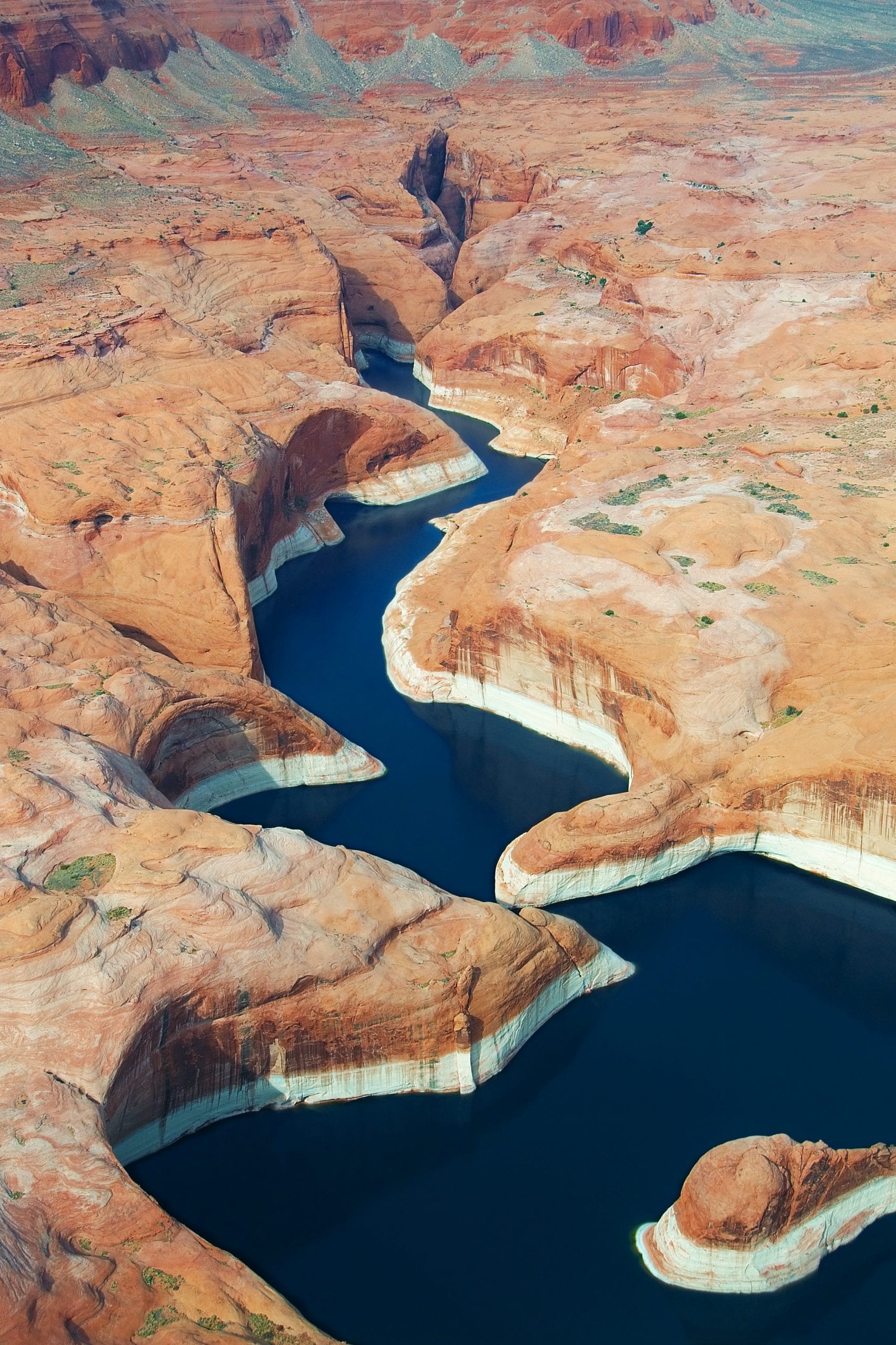Environment
UCRC Pilot Program to pay water users for helping to conserve Colorado River

Glen Canyon Dam just downstream from Lake Powell Photo: Ilse Orsel
UTAH — The dwindling water levels at Lake Powell and Lake Mead has been a well-televised issue from the drought being experienced in many areas of the Western U.S. Governing the upper half of the Colorado River that feeds the reservoirs is the Upper Colorado River Commission (UCRC) consisting of Utah, Colorado, New Mexico, and Wyoming. To reach the goal set out by the United States Bureau of Reclamation (BOR), suggesting an additional 2 to 4 million acre-feet of water per year was needed, the commission and its member states are launching a revival of the System Conservation Pilot Program, which first ran from 2015-2018, as a part of their five-point plan.
Under the pilot program, water users could receive $150 per acre-foot or more for water being conserved. An acre-foot of water means an acre of land filled with water at a depth of one foot. Similar to the “cash for grass” policies, the pilot program encourages end users to think about their water consumption and look for ways to reduce usage. This is the first step in the five-point plan by the UCRC and will go into effect in April of next year.
In a statement from the U.S. Department of the Interior announcing actions to protect the Colorado River System, Assistant Secretary for Water and Science Tanya Trujillo said, “Every sector in every state has a responsibility to ensure that water is used with maximum efficiency. To avoid a catastrophic collapse of the Colorado River System and a future of uncertainty and conflict, water use in the Basin must be reduced.”
Funding for the pilot program will come from the Inflation Reduction Act in the form of $4 billion of funding set aside for projects related to water management or conservation efforts along the Colorado River Basin. Under the act, a minimum of $500 million must be allocated to the Upper Basin in Colorado, Utah, Wyoming, and New Mexico. The money from the Inflation Reduction Act builds upon the already-in-place Bipartisan Infrastructure Law, which has $8.3 billion going toward investments centered around water conservation.
“This significant investment from the Inflation Reduction Act enables the Bureau of Reclamation to improve water management and conservation efforts in the Colorado River Basin today – and for the future,” said Reclamation Commissioner Camille Calimlim Touton. “The Lower Colorado River Basin System Conservation and Efficiency Program provides new opportunities for system conservation and more durable long-term solutions for areas experiencing drought.”
Maintaining water levels and flow will be critical for hydroelectric power to remain consistent and for the dams that produce it to be protected. 80% of the Colorado River Storage Project’s electrical generation is done at the Glen Canyon Dam just downstream from Lake Powell. The System Conservation Pilot Program is the first step in hopefully improving the situation.


















